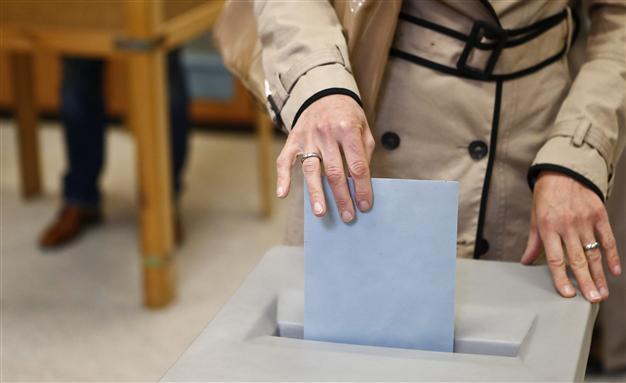Proposed electoral system likely to favor ruling AKP
ISTANBUL – Hürriyet Daily News

REUTERS Photo
The narrowed constituency election model, one of the options proposed by the Turkish prime minister as part of a new democracy package, would favor large parties and hinder party representation in Parliament, but would lower intra-party authoritarianism, according to analysts.Prime Minister Recep Tayyip Erdoğan, who announced the package on Sept. 30, suggested three alternatives to be discussed regarding the electoral system: keeping the system unchanged, lowering the 10 percent threshold for a political party to enter Parliament to 5 percent along with narrowing electoral constituencies to five seats, or canceling the electoral threshold completely and establishing a narrowed constituency model.
The debate on the 10 percent threshold, which has kept pro-Kurdish groups from entering Parliament as a single party, has continued for years, but the narrowed constituency model has brought a fresh dynamic to electoral system discussions.
According to the narrowed constituency system, the country will be divided into five-member election districts, and the party that wins a majority of votes in a district will send five representatives to Parliament, instead of electing deputies based on the vote distribution of the parties.
This model is expected to champion the Justice and Development Party (AKP), which is expected to score first in most of the districts. According to a simulation based on June 12, 2011, vote rates, the AKP would earn approximately 30 more seats in Parliament, which would help it to surpass the 330-MP threshold that is needed to pass laws directly.
The Republican People’s Party (CHP) and the Peace and Democracy Party (BDP) would be affected slightly negatively by narrowing the constituencies.
The vote distribution of the BDP indicates that the proposed system would slash its presence in large metropolises, where a great number of the Kurdish population lives, but the advantages it will gain in eastern and southeastern provinces would compensate for that, analysts said.
Most of the projections suggest that the Nationalist Movement Party (MHP) would be the biggest loser if the narrowed constituencies are established. Most pessimistic calculations suggest the number of MHP MPs in the next Parliament could fall from the current number of 52 to below 15.
Meanwhile, former Justice Minister Hikmet Sami Türk warned against potential gerrymandering practices during the process of setting electoral districts, as powerful actors may attempt to establish a political advantage for a particular party.
“This kind of a change will likely necessitate a re-drawing of electoral districts before almost every election in our country, which witnesses rapid population rise and condensation at metropolises. That would bring the gerrymandering questions to the parties deciding the district borders,” he said.
In addition to its dramatic impact on vote distribution, the narrowed constituency system would also change the dynamics of political culture in Turkey.
Tarhan Erdem, the head of KONDA Research and Consultancy organization and one of the “wise people” picked by the government to work on the peace process, said the narrowed seat system would result in intra-party democratization, but its social harm was greater than its benefits.
“The leader’s influence on the organization would loosen, but parties’ ideological unity would cease and policy implementing would be harder,” he said in his column published in daily Radikal today. Moreover, the parties’ program differences would diminish, as another downside of the debated system, he said.
Concerning the lowering or complete elimination of the 10 percent threshold, Erdem said that in addition to enabling entrance into Parliament, that kind of move may also increase the number of Kurdish parties, which would constitute representation alternatives for Kurdish society.
















